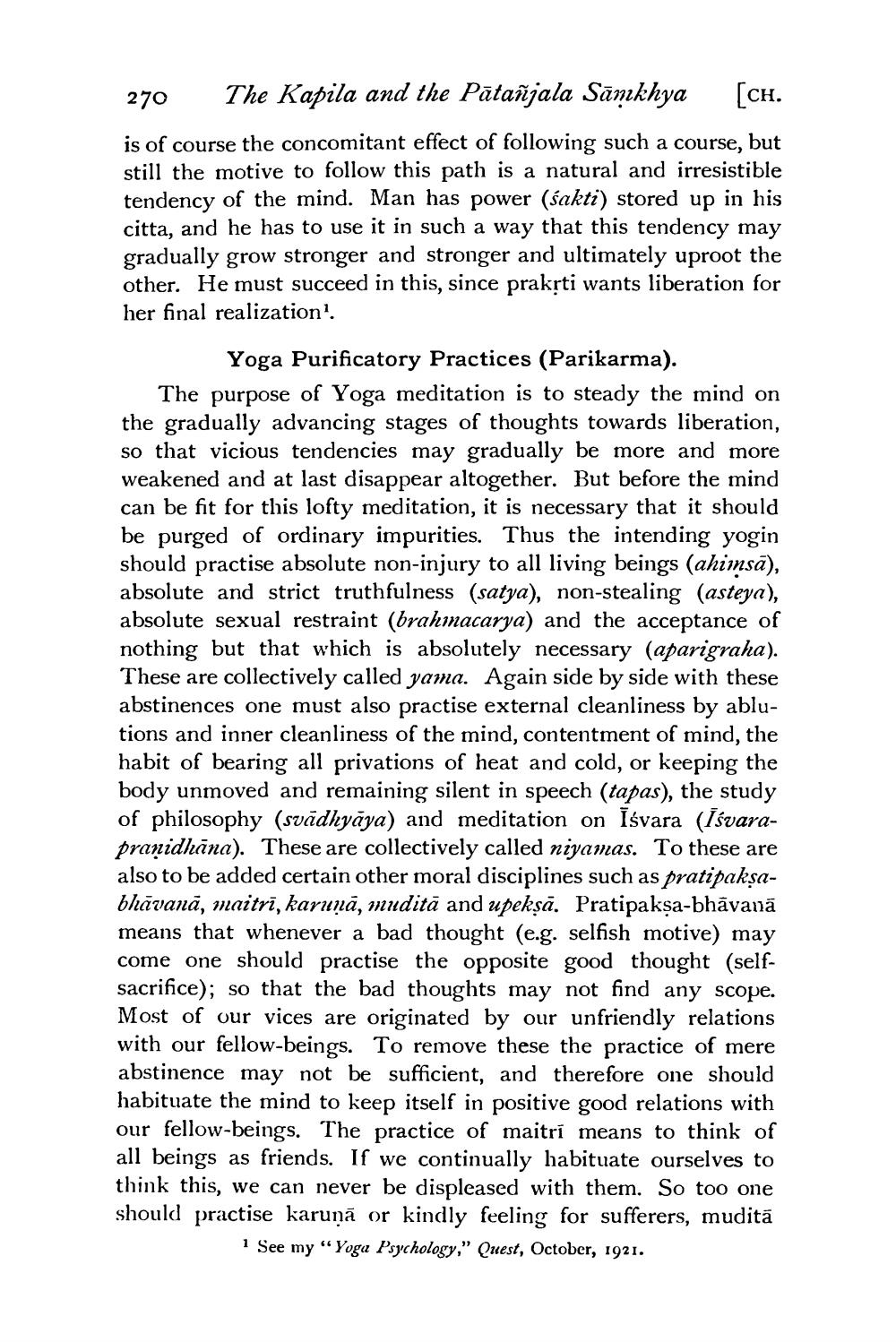________________
270 The Kapila and the Patañjala Sāmkhya [CH. is of course the concomitant effect of following such a course, but still the motive to follow this path is a natural and irresistible tendency of the mind. Man has power (sakti) stored up in his citta, and he has to use it in such a way that this tendency may gradually grow stronger and stronger and ultimately uproot the other. He must succeed in this, since prakrti wants liberation for her final realization?
Yoga Purificatory Practices (Parikarma). The purpose of Yoga meditation is to steady the mind on the gradually advancing stages of thoughts towards liberation, so that vicious tendencies may gradually be more and more weakened and at last disappear altogether. But before the mind can be fit for this lofty meditation, it is necessary that it should be purged of ordinary impurities. Thus the intending yogin should practise absolute non-injury to all living beings (ahiinsā), absolute and strict truthfulness (satya), non-stealing (asteya), absolute sexual restraint (brahmacarya) and the acceptance of nothing but that which is absolutely necessary (aparigraha). These are collectively called yama. Again side by side with these abstinences one must also practise external cleanliness by ablutions and inner cleanliness of the mind, contentment of mind, the habit of bearing all privations of heat and cold, or keeping the body unmoved and remaining silent in speech (tapas), the study of philosophy (svādhyāya) and meditation on īśvara (iśvarapraạidhāna). These are collectively called niyamas. To these are also to be added certain other moral disciplines such as pratipaksabhāvanā, maitri, karună, muditā and upeksa. Pratipaksa-bhāvanā means that whenever a bad thought (e.g. selfish motive) may come one should practise the opposite good thought (selfsacrifice); so that the bad thoughts may not find any scope. Most of our vices are originated by our unfriendly relations with our fellow-beings. To remove these the practice of mere abstinence may not be sufficient, and therefore one should habituate the mind to keep itself in positive good relations with our fellow-beings. The practice of maitri means to think of all beings as friends. If we continually habituate ourselves to think this, we can never be displeased with them. So too one should practise karuņā or kindly feeling for sufferers, muditā
i See my “Yoga Psychology," Quest, October, 1921.




